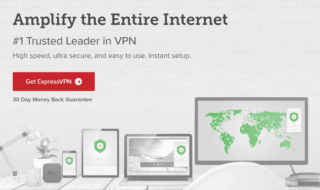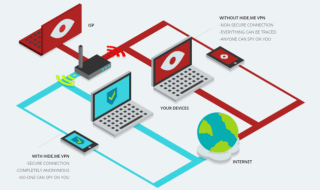With privacy concerns rising in the wake of numerous worldwide data breaches, many consumers are turning to proxies. But security-conscious users are not the kind to move blindly; many have questions— and rightly so.
One issue that is integral to online privacy is masking a user’s IP address. Your IP address is a form of digital identification assigned to you by your Internet Service Provider (ISP). People can use your IP address to track your activity on the internet and even trace your location.
Here we will discuss how a proxy can help protect your privacy and if proxies can hide your IP address online.
Contents
Proxies and Privacy: Keep Your IP Spy-Free

Content.
Proxy servers have a long-standing reputation in the privacy and security space. Yet when it comes to your personal information, you can never be too careful. You may be wondering if you are truly safe.
You might be surprised to learn that not all proxies perform the same tasks. There are many different proxies with various uses. Below are some ways to check how well you are protected and if your proxy hides your IP.
Check What Others See Through Your Proxy
It’s reasonably simple to check whether your proxy is hiding your IP address. The process involves first discovering what your actual IP address is, then check what your proxy shows. Follow the steps below for Windows and Mac.
Before we run the first check, you will need to disable your proxy temporarily to ensure no interference. The exact steps to turn off your proxy will depend on your device and operating system.
In Windows 10, you can turn off your proxy by Clicking Start, going to Settings, and selecting Network & Internet.
From the Network & Internet window, select Proxy from the column on the left and look under the heading Manual Proxy Setup. Switch off the option that says Use Proxy.
In macOS, disable your proxy by opening System Preferences and click on Network. In the Network window, click the Advanced button, and then select the Proxies tab.
From the list of protocols on the left, uncheck the boxes to disable proxies on them. For our test, you will only need to uncheck the HTTP web proxy.
Click OK to save the settings.
Next, you will need to open your web browser and navigate to showmyip.com.
Make a note of the values listed in the IPv4 and IPv6 fields. Depending on the type of connection and proxy you use, you might have one or both address types assigned to you.
Now that you have your actual IP address values re-enable your proxy using the same steps as before. Once you switch on your proxy again, open your browser and clear your cache before proceeding. While emptying your cache isn’t always a requirement, it ensures that you receive accurate results during the final step.
Lastly, revisit showmyip.com and check the results of IPv4 and IPv6 with your proxy enabled. If the addresses are the same as your first results, your proxy isn’t masking your IP address.
You might also want to check the other fields on the results page to determine if your proxy is masking or leaking additional information about you. Generally, a secure proxy should hide your ISP and location information. If you notice that your proxy is leaking identifiable information about you, it may be time to consider a new provider.
Hiding Your IP is Essential for Security
Your IP address is an integral part of your online identity. As we saw from the checks above, anyone can use IP addresses to track and trace the source. Even if your online activities are entirely innocuous, you cannot be too careful when it comes to your online safety.
In recent months, the UK saw a spike in online cyber-attacks, ranging from identity theft to corporate security breaches. With digital threats on the rise, it’s vital to protect yourself with a secure, reliable proxy.
The first order of defense is obfuscation. If an attacker cannot determine your precise location or aim their attack, you are inherently safer. By protecting the identity of your device, a would-be hacker won’t know which software to target, or even your country!
Better Safe Than Sorry
With this guide in your security arsenal, you will be prepared to check your proxy for holes and know when it’s time to trade up to more proficient security. In today’s connected world, it’s better to be safe than sorry.



